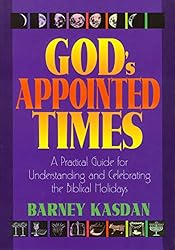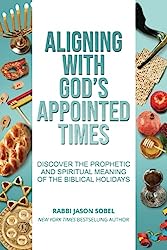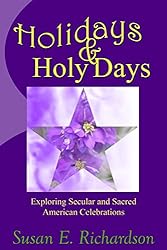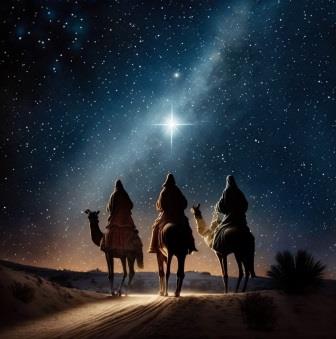Often the first things those new to Messianic and Hebrew Roots embrace are the Sabbath and the Biblical Feasts. It is new and exciting, and it seems we just want to dig in, learn, and experience more. But what about the things we did previously? What should be done about Sunday, Christmas, and Easter?
In this post, we will just consider one of these: Christmas. As I write this it is June 25. We are half-way through the Gregorian year. It is the farthest away from the last Christmas and the next Christmas that we will ever be. This is a great time to consider the topic, rather than waiting until the time is upon us.
What Is December 25th?
Among Messianic and Hebrew Roots circles, it is commonplace to read or hear that the selection of December 25 for the birth of the Messiah was originally a pagan holiday. It is often tied to the winter solstice, although this date is actually several days past the solstice. And because it is near the winter solstice, the date is associated with the birth of the sun, or with the sun god known by a variety of different names in different cultures. Some have postulated that December 25 is the first day that daylight hours are noticeably longer.
Recently I found a list of pagan gods born on December 25, some going back to before 1000 BC. And while it is possible to say some of these gods were “born” at the winter solstice, it is not correct to say they were born on December 25. December 25 was not part of the calendar system in 1000 BC.
Many in the past have associated Christmas with the Roman festival of Saturnalia, a wild winter celebration and a week-long party from December 17 through December 23. It included the winter solstice, but did not continue on to the 25th of the month. And Saturn was not the Roman sun god – that would have been Sol. This idea seems to be most pronounced in Alexander Hislop’s The Two Babylons, a book which has been thoroughly discredited, and more recently in Fossilized Customs which parroted the previous errors.
The earliest mention of December 25 for the birth of Jesus seems to be by Hippolytus of Rome, who lived in the late 2nd and early 3rd centuries. But that is one of several possible dates in December and January, and it has been suggested that subsequent scribes may have changed his dating. For a lengthy discussion of Hippolytus and December 25, check out the Winter 2022 edition of Biblical Archaeology Review.
What was his logic? Hippolytus appears to have believed that the “Genesis of Christ” – the conception – occurred on Passover – specifically, April 2 in 2 BC. Others, such as Clement of Alexandria, seem to have held similar views. Is that date correct? Probably not, but it is important to note that his basis for December 25 was NOT derived from pagan holidays.
Marking December 25 as the birthday of Sol Invictus and other sun gods didn’t come about until the 4th century, created by the Roman emperor Aurelian. This date might have even been chosen in order to “shadow early Christian celebrations already on the rise.” That is the opposite of what we usually hear. It is possible that the date for a pagan holiday was selected to coincide with something Christians were already doing.
Wasn’t Yeshua born at Sukkot?
Maybe. The truth is, we just don’t know. Scripture does not give the date. As I have pointed out in several of my posts, there is never a calendar date of any kind mentioned anywhere in the New Testament writings. It just does not seem to be important.
You may have come across calculations showing that Zacharias, the father of John the Baptist, was serving in the Temple at a specific time, determined by the fact that he was from the priestly division of Abijah. That line of thinking goes on to establish when Zacharias’ wife, Elizabeth, became pregnant with John, then when Mary visited her after becoming pregnant with Yeshua. Following this timeline places the birth of John the Baptist at Passover, and the birth of Yeshua six months later at Sukkot.
Further, if Yeshua was born at Sukkot then he also turned 30 years old during Sukkot. He may have been baptized by John on his 30th birthday (Luke 3:23) and begun a three-and-a-half year ministry, ending when he was crucified at Passover. Such a timeline fits nicely, and also gives us additional reasons to proclaim the significance of Biblical Festivals, though outside of what the Torah describes. This is speculative, based on a lot of assumptions. But it is as good a guess as any.
Of course, there are other ideas. For example, maybe Zacharias was in the Temple on Yom Kippur in late September, and John was conceived shortly thereafter. Yeshua was conceived six months later, in late March, and born nine months after that in late December (25?). Others insist it must have been Spring because shepherds were in the fields – as if they weren’t in fields at other times.
The simple, basic truth is, we don’t know when Yeshua was born, and we are never instructed to observe or celebrate his birth in any way. We are told to remember his death.
What Are Christians Doing?
No doubt Christmas is filled with a lot of questionable as well as downright pagan practices. You can pretty easily find information about the traditions of mistletoe, holly wreathes, yule logs, and the like. I can assure you, though, that contrary to the self-appointed Torah Police, no Christian is bowing down and worshiping a Christmas tree when they retrieve wrapped packages from underneath. That kind of tale is just silly nonsense.
When Christians celebrate Christmas, they are celebrating the birth of Jesus. They do it by singing hymns and Christmas carols about the arrival of the newborn baby Messiah. They do it by sending Christmas cards and greetings to friends and relatives, often including Scripture, pictures, and stories of the nativity. They do it with Christmas plays, cantatas, and candlelight services.
Christians also often participate in secular festivities, things that have nothing to do with the birth of Jesus. Santa Claus, Ebenezer Scrooge, George Bailey, and the Grinch fill the airways. Candy canes, silver bells, and giant stockings decorate their homes and businesses. And an evergreen tree decked out in tinsel and lights stands in the living room.
Yes, Christians are acknowledging the birth of the Son of God. Not a single Christian I have ever known or heard of is worshiping or observing the birthday of a sun god. Are Christians incorporating things not not pleasing to our Father? If you are the one struggling with these things, then ask him. If it isn’t your struggle, show some grace.
There are things here that, as Torah obedient followers of Messiah Yeshua, we must come to terms with ourselves. Some of these, I think, violate the spirit of what our Heavenly Father has set out for us – and some may even be blatant, direct violations. Others, while not problematic in themselves, should be avoided simply because of guilt by association. Those are individual, personal decisions.
Why Now?
I mentioned earlier that at the time of this writing we are half-way through the Gregorian year. Reasoning through these issues without the pressure of the approaching time may come more easily. Making your thoughts known now allows time for explanations and discussions before plans are made by others in your family or close friendships, giving a little space for the shock to subside.
It also allows time for making alternative plans for, say, a family get-together that is not centered around the Christmas holiday. Waiting until you receive an invitation or until holiday celebrations are presented to you can be troublesome. Not only are you disrupting the hopes of your family and friends, but you are also not allowing any time for healing to take place before they go on with their festivities.
But these are all things of which each of us needs to be certain in our own minds. You won’t find anything in this post that will make those decisions for you. Ask God what pleases him.
For additional resources, click or tap the images of the books below.





It goes a little deeper than just an innocent celebrating of the Messiah’s birth if your honest. It involves replacement theology declaring the Jewish Messiah came to do away with Yah’s Torah, ignoring Yah’s feasts and replacing them with the Church’s holy days as well as declaring the Church as the New/Real Israel and the Jewish people as having to accept something/someone who Moses said to reject–someone who comes even with signs and wonders to take people away from Yah’s Torah. Be honest about it for the sake of the gospel of the Jewish Messiah.
Thank you for your research and post. True, people are not worshiping a tree, etc, but we must also acknowledge Yah says do not do as the heathen, and do not put HIS name on their practices [Deut]. Christmas and Easter do involve several pagan practices. Even with out worship of a sun or moon god they are still pagan back to Babylon & Nimrod. No one means to be the Torah police, some def do get over zealous defending what Yah says, and I’ll speak for myself and why I speak up, is I don’t want fallen spiritual doors opened, especially of the brethren. The bible tells us how many time Israel [believers] fell for paganism schemes that constantly had them/us in spiritual troubles and issues – golden calf example of putting Yah’s Name on a pagan item & practice. Grace and mercy are definitely offered, we needed that as well when we first heard and it took almost 2 years for it to sink in. Enjoy your website, thank you for it, and many blessings and peace to you all. I agree, just pray, take it to Yahushua and see what happens – the Holy Spirit is amazing with bringing truth gentler than a lot of people ☺ Shalom!